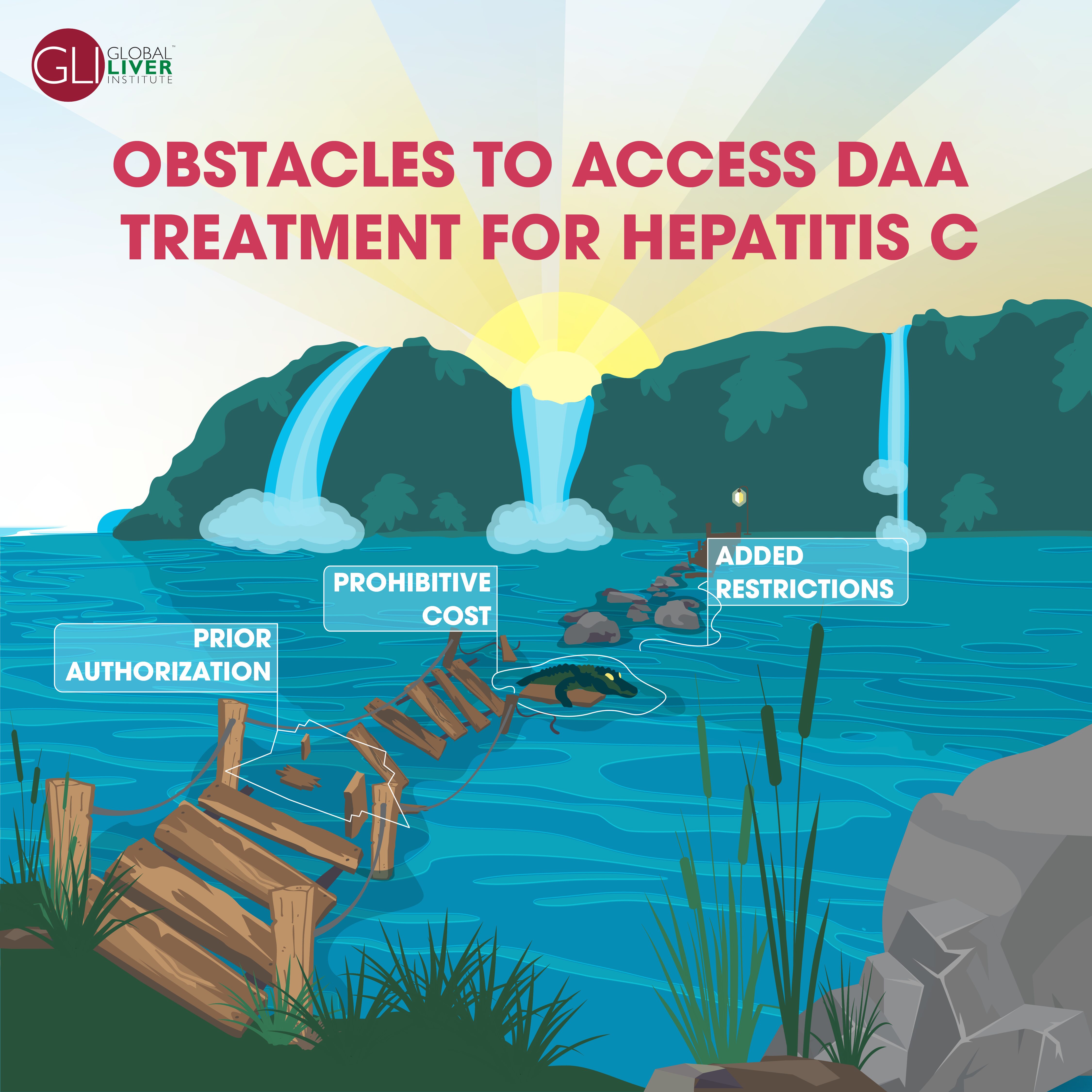
Latest Developments in Treatments
In recent years, liver cancer has emerged as a significant global health concern, with increasing incidence rates and a pressing need for innovative treatment strategies. This newsletter highlights several articles that delve into the latest trends and advancements in liver cancer research and treatment. By exploring these developments, healthcare professionals and patients can stay informed about cutting-edge techniques that may improve health outcomes.
Addressing liver health disparities in rural areas: A global conversation
In a recent roundtable hosted by Sarah Manes, Liver Cancers Program Director at Global Liver Institute (GLI), medical experts from the USA, Cameroon, and Mexico highlighted the significant disparities in liver health faced by rural populations. Dr. Andrew Moon, Dr. Mbinake Livancliff, and Dr. Jorge Emilio Lira Vera detailed the unique challenges in their regions, including limited access to healthcare, late-stage diagnoses, and the impact of social stigma. Key strategies discussed included expanding hepatitis screenings, leveraging telemedicine despite infrastructure gaps, conducting vaccination campaigns, and fostering community education. Innovative approaches such as training providers in cost-effective diagnostic techniques and engaging traditional healers to break cultural barriers are making progress. The panel emphasized that addressing liver diseases in rural communities will require global efforts to improve healthcare access and increase public awareness. These strategies pave the way for advancing health equity and improving outcomes for underserved communities worldwide.
COR2ED HCC Podcast Series
COR2ED released episode 3 of their 4-part podcast series on hepatocellular carcinoma (HCC). The Oncology Brothers, Dr. Rahul and Dr. Rohit Gosain, are joined by hepatologist and GLI Liver Cancers Council Member Dr. Maria Reig, and interventional radiologist Dr. Emil Cohen to discuss treatment strategies for patients with intermediate-stage HCC. The experts offer essential insights into the various treatment options for this diverse patient population and examine how systemic treatments and multimodal strategies can contribute to achieving the best possible outcomes for patients.
New issue of touchREVIEWS in Oncology & Haematology eJournal
TouchOncology has released its newest issue of touchREVIEWS in Oncology & Haematology. This edition highlights significant progress and ongoing challenges in oncology, presenting engaging articles on various topics such as breast, colorectal, gastrointestinal, lung, and prostate cancers. In this issue, TouchOncology aims to spark valuable discussions and provide readers with the latest evidence and expert insights.
Alcohol and Cancer Risk
The 2025 Alcohol and Cancer Risk Advisory from the U.S. Department of Health and Human Services, led by the Surgeon General, reveals the undeniable connection between alcohol consumption and increased cancer risk. The report shows how even moderate drinking can raise your chances of developing cancer, including breast cancer in women, colorectal cancer, esophageal cancer, laryngeal cancer, liver cancer, and cancers of the mouth and throat.
Promising combination therapy could improve liver cancer outcomes
A recent study highlights a promising combination therapy that could significantly enhance outcomes for patients with liver cancer. Researchers explored the use of immune checkpoint inhibitors, which block proteins such as PD-1 or CTLA-4 that tumors use to evade immune attacks, thereby reactivating T cells to destroy cancer cells. Alongside this, they investigated a novel targeted therapy focusing on the chemokine receptor CXCR4, which plays a key role in tumor progression and immune regulation. CXCR4 inhibition helps disrupt the tumor microenvironment and enhances the effectiveness of immune checkpoint inhibitors by promoting better immune cell infiltration into tumors. The study revealed that this dual approach not only suppressed tumor growth but also extended survival in preclinical models. By leveraging both immunotherapy and targeted treatments, this innovative strategy aims to address the challenges of resistance and limited efficacy often seen with single therapies. These findings pave the way for further clinical research to assess the combination’s potential in improving liver cancer treatment outcomes.
How diet and vaccinations can proactively prevent liver cancer
In a news segment on WBRZ, Mayo Clinic’s oncologist and GLI Liver Cancers Council Member, Dr. Lionel Kankeu Fonkoua, highlights proactive ways to reduce the risk of liver cancer through lifestyle choices and preventive measures. The discussion delves into the critical role of a healthy diet, emphasizing foods that support liver health, as well as the importance of vaccinations, like the hepatitis B vaccine, to lower the likelihood of liver cancer development. Dr. Fonkoua also discusses the impact of regular screenings and maintaining a healthy weight to prevent liver disease progression.
The Case for Universal Access to Hepatitis C DAA Treatment for Your Patients
Direct-acting antiviral treatment for hepatitis C infection can cure the vast majority of cases, improve quality of life, and prevent further disease development– but many patients still lack access. In each health system or insurance policy, we must remove barriers to this lifesaving care, whether financial hurdles, prior authorization, demographic/behavioral restrictions, disease severity requirements, or something else. Let’s prevent liver cancer and disease progression in our communities by speaking up and demanding better!
Upcoming Events:
- February 2025 – Rare Liver Diseases Month – #RareAware
- February 4, 2025: World Cancer Day
- February 4, 2025: Virtual Liver Transplant Support Group
- February 12, 2025: Grupo de Apoyo en Español – Virtual Cholangiocarcinoma Spanish Support Group
- February 13, 2025: Webinar: Cancer Caregiver Support Group
- February 15, 2025: World Cholangiocarcinoma Day
- February 19, 2025: Webinar: Elegir un seguro de salud y manejar las facturas médicas
- February 21, 2025: National Caregivers Day
- February 26, 2025: Webinar: Managing the Cost of Your Cancer Care at Memorial Sloan Kettering (MSK)
For more information about the Liver Cancers Council or to learn more about joining, please visit https://globalliver.org/liver-cancers-council/ or email cancer@globalliver.org





